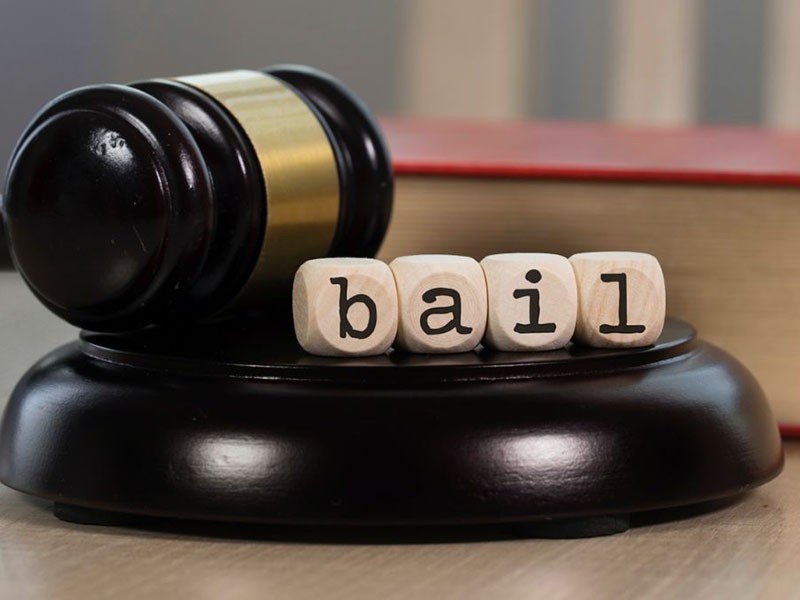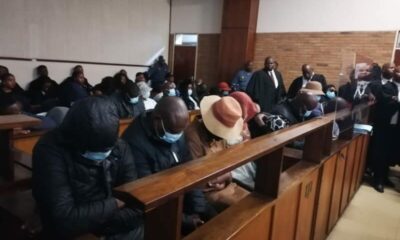Best of Johannesburg
Inside South Africa’s Bail System: How Freedom, Fairness, and Shock Collide in 2025

In South Africa, bail exists to protect the principle of being innocent until proven guilty. It is not a reward or punishment. It is a mechanism that allows someone accused of a crime to wait for their trial outside prison while promising to return to court when required. Yet, in 2025, the bail system still reveals deep divides between the rich, the poor, and the powerful.
What Bail Really Means
When someone is arrested, they can apply for bail, which is a financial guarantee that they will come back to court and not interfere with justice. If they comply with all conditions, their bail money is refunded after the trial. The Criminal Procedure Act governs the process and separates bail into three main categories, depending on the seriousness of the crime.
Police bail: This applies to minor offences, such as petty theft or common assault. A police officer of a certain rank can grant bail at the station before the first court appearance.
Prosecutor bail: For more serious but not severe offences, such as limited forms of fraud or assault, a prosecutor can authorise bail at the police station before the first appearance in court.
Court bail: For all serious crimes, especially those under Schedules 5 and 6 of the Criminal Procedure Act, a formal bail hearing must take place before a magistrate or judge. The accused has to convince the court that releasing them would not harm justice or endanger others.
For many gender-based violence-related offences, police or prosecutor bail is restricted. In these cases, the application must usually be heard in court, where the victim’s safety is a crucial consideration.
How Judges Decide
Courts weigh the accused person’s right to freedom against public safety and the interests of justice. The key questions include whether the accused might flee, commit another offence, or interfere with witnesses.
Judges also look at personal circumstances, such as family responsibilities or health, to decide whether release is reasonable. The more serious the crime, the higher the burden. For Schedule 6 offences like murder or rape, an accused person must show exceptional circumstances that justify bail.
What’s Been Shocking Courts in 2025
Lying about criminal history: Judges have shown frustration with accused persons who hide previous convictions or pending cases. This lack of honesty undermines trust in the justice system and often leads to an immediate denial of bail.
Breaking bail conditions: Reoffending or ignoring court-imposed restrictions is viewed as a sign of disrespect for the law. Such actions almost always result in bail being cancelled and the accused being sent back to custody.
Tampering with evidence or witnesses: Any sign that the accused is trying to intimidate witnesses or influence investigations is seen as a serious violation that disqualifies them from bail.
Poverty and inequality: Thousands remain in custody only because they cannot afford small bail amounts. According to the Judicial Inspectorate for Correctional Services, over 2,600 detainees in 2025 had bail set below R1,000, yet stayed behind bars because they could not pay. These so-called prisoners of poverty highlight how wealth still shapes access to justice.
A System Under Review
South Africa’s bail laws are under review. In February 2025, the South African Law Reform Commission released a major discussion paper proposing updates to the Criminal Procedure Act. The reforms aim to reduce overcrowding, make bail fairer, and strengthen the rights of victims in the process.
One of the most debated proposals is a Bail Fund pilot, designed to assist low-income detainees who cannot afford small bail amounts. Parliament and the Judicial Inspectorate are discussing a possible trial programme to prevent minor cases from clogging prisons.
At the same time, there are growing calls for victims to be more involved in bail hearings. Under the proposed reforms, victims would be notified of bail applications and could voice safety concerns before a decision is made.
The Bigger Picture
South Africa’s courts often reflect the country’s broader tensions between justice and inequality. Families struggle to raise bail money, victims worry about safety, and magistrates face overcrowded dockets. Social media frequently erupts when accused people in violent cases are released, while others languish in jail for lack of a few hundred rand.
Public frustration continues to grow, but the message from the judiciary is clear. Bail is not about privilege. It is about ensuring justice without punishing someone who has not yet been convicted. The challenge for 2025 and beyond is to build a system that balances compassion, accountability, and fairness for all.
Also read: Bail in South Africa 2025: Why Some Walk Free While Others Stay Behind Bars
Follow Joburg ETC on Facebook, Twitter, TikT
For more News in Johannesburg, visit joburgetc.com
Featured Image: Bakshi’s Blog – Bakshi & Associates


























